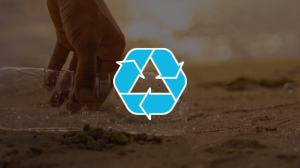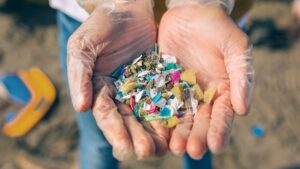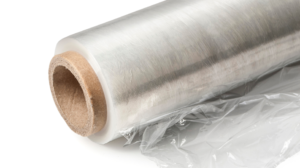Why pineapple leaves are a promising candidate to replace plastic materials used in single-use masks
The COVID-19 pandemic caused a massive increase in single-use plastics that has dramatically worsened the global plastic waste issue.
Single-use masks commonly used as a first line of defense are made from several layers of plastic; in 2020 alone, 1.56 billion masks ended up in the ocean. Pineapple leaves, which are heavy in cellulose, are being considered as an alternative material with which to make masks. Would you adopt the use of a bio-based mask?
Story Preview:
As the mask wastes may contribute to plastic pollution, it may also accumulate and release harmful chemical and biological substances such as bisphenol A (BPA), which may have a carcinogenic effect, as well as heavy metals and disease-causing microbes. This is becoming a significant problem, particularly in countries with poor waste management. The race to find a sustainable solution for public health safety measures is urgent to reduce the global plastic problem.
As biotechnology researchers, we propose biodegradable disposal masks made from pineapple leaves to tackle pandemic-associated waste. Pineapple leaves contain high levels of cellulose, and thus can be a good alternative to plastic fibers.
Our biodegradable, disposable masks are made from fibers from pineapple leaves. This pineapple-leaf fiber is made of roughly 70% cellulose, making them easy to decompose. As the fiber is immersed in the soil, it only takes three days for microorganisms such as fungi or bacteria to begin the degradation process.
Preview text: Dwi Umi Siswanti and Tiara Putri, July 19, 2022, The Conversation



